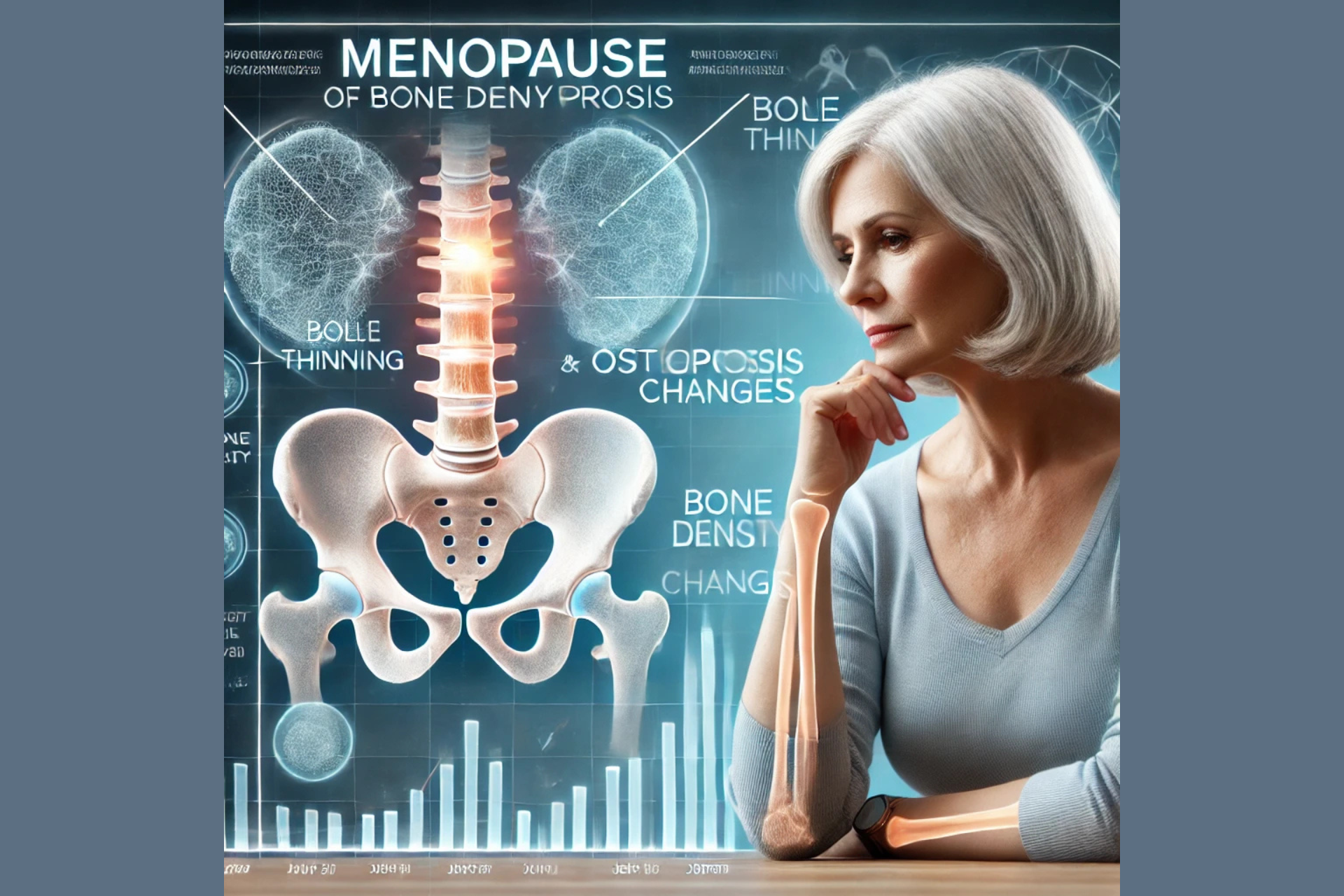How Menopause Can Increase the Risk of Osteoporosis? What You Don’t Know
Introduction:
Did you know that during menopause, your body goes through a hormonal transformation that can affect the health of your bones? Many people believe menopause is just about symptoms like hot flashes and mood swings, but one of the most silent effects of this phase is osteoporosis, a condition that Weakens bones, making them more susceptible to breaks. If you’re wondering how this connection happens and what can be done to prevent it, keep reading. In this article, we’ll uncover the untold truths about how menopause can affect bone health and prevention strategies you might not know about.

What Is Osteoporosis and How Does It Affect Your Bones?
Osteoporosis is a condition in which bones become weak and brittle due to the loss of bone mass, making them more prone to fractures. The aging process and the decrease in essential hormones like estrogen are key factors in the development of this condition. During menopause, estrogen levels drop drastically, which accelerates bone loss.
The Impact of Menopause on Bone Health
When a woman enters menopause, the production of estrogen decreases significantly. Estrogen plays a vital role in maintaining bone density because it helps in the absorption of calcium and the balance of other minerals. Without this hormonal protection, the cells responsible for bone degradation (osteoclasts) start to proliferate faster than the cells that build new bones (osteoblasts), resulting in accelerated bone loss.
Moreover, menopause can be accompanied by other factors that worsen the risk of osteoporosis, such as increased cortisol (the stress hormone), decreased vitamin D, and reduced physical activity.
How Menopause Accelerates Bone Loss? The Truth Behind Hormonal Changes
Estrogen and Bone Density
Estrogen has a crucial role in the bone remodeling process by helping balance the rate of bone absorption and formation. With the decline of estrogen during menopause, collagen production decreases, weakening the bone structure and making them more porous and fragile.
The Hidden Dangers of Rapid Bone Loss
In the first 5 years after menopause, women may lose up to 20% of their bone mass. This rapid and often imperceptible process can lead to osteoporosis, a condition that is known as the “silent epidemic” due to the lack of early symptoms.
Prevention and Care: How to Protect Your Bones During Menopause
Now that we know how menopause can affect bone health, the good news is that there are several prevention and treatment options available. The key is to act early to minimize the effects of bone loss.
A Diet Rich in Calcium and Vitamin D
Exercise: The Secret to Strong Bones
Regular physical activity, especially weight-bearing exercises like walking, running, or strength training, can strengthen bones and prevent bone loss. Impact exercises also help stimulate collagen production, which is essential for bone health.
Supplements: What Really Works?
Supplements such as calcium, vitamin D, and magnesium are recommended for women during menopause to support bone health. However, it is important to remember that they should be taken with medical guidance, as excessive calcium, for example, can lead to kidney problems.
Medical and Alternative Treatments: What’s Available to You?
Hormone Therapy: Is It Worth It?
Hormone Replacement Therapy (HRT) has been an effective treatment for women in menopause because it replaces the hormones the body no longer produces, helping protect bones. However, it is important to discuss the pros and cons with your doctor, as HRT may not be suitable for all women, particularly those with a history of breast cancer.
Natural Alternatives: Herbal Remedies and Other Solutions
Some women turn to alternative treatments such as herbal remedies and natural supplements (like evening primrose oil or soy) to combat menopause symptoms and improve bone health. While these treatments do not replace traditional medicine, some herbs and extracts may help balance hormones and strengthen bones.
Conclusion:
Menopause is a period of significant changes in the female body, and osteoporosis is one of the most silent effects of this transition. With the loss of estrogen, bones become more fragile and prone to fractures. However, with a proper diet, regular exercise, supplements, and, if necessary, medical treatments, it is possible to maintain healthy bones and prevent future complications. It’s never too early to start taking care of your bone health and ensuring a long, active life!
Frequently Asked Questions:
1. What are the early signs of osteoporosis?
Osteoporosis usually has no early symptoms.
2. When should I start worrying about bone health?
It’s ideal to start paying attention to bone health after the age of 30, when bone formation begins to slow down. During menopause, concern should be even greater.
3. Is Hormone Therapy safe for all women?
Hormone Therapy can be effective but is not suitable for all women, especially those with a history of breast cancer or cardiovascular problems.
4. What is the recommended daily intake of calcium for women in menopause?
The recommended amount of calcium for women in menopause is about 1,200 mg per day.
5. Are weight-bearing exercises safe during menopause?
Yes, weight-bearing exercises like walking and running are recommended to strengthen bones, but they should always be done with medical guidance, especially if there is a history of bone problems.
Also, check out how to prevent and treat osteoporosis at juliocemar.com
Also read Secrets of Menopause: How to Handle Hormonal Changes at ajustersavie.com
